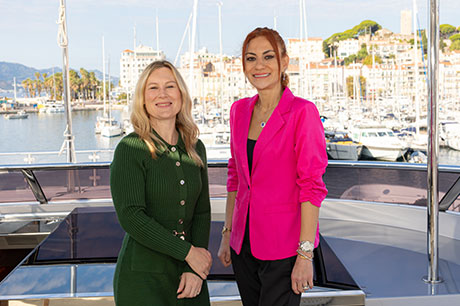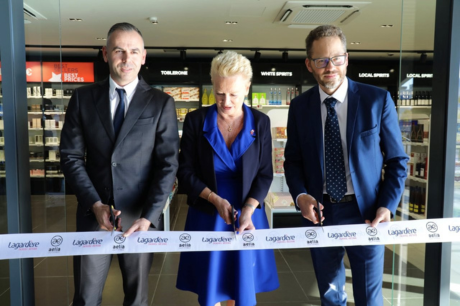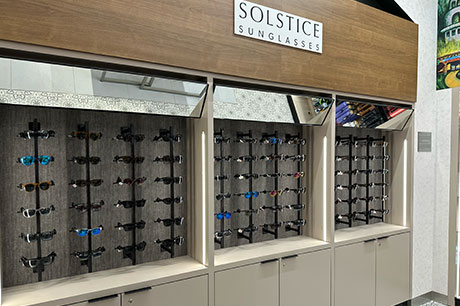Avinor passenger numbers soar 41% in Q1 but remain behind 2019
By Kristiane Sherry |

Avinor has seen passenger numbers for the first quarter climb 41% year-on-year, but they are still behind 2019 levels. IMAGE: Avinor / Øystein Løwer
Norway’s state-owned airport operator Avinor saw its passenger numbers reach 10.4 million for the first quarter of 2023, a 41% increase on the same period in 2022 but 15% behind the 2019 figure.
The total takes into account passengers flying to, from or via one of Avinor’s 43 airports across the country.
In a statement, Avinor said the year-on-year increase was a “marked” one, due to 2022 Q1 figures being suppressed by the Omicron variant.
In 2023 Q1, total aircraft movements climbed 15%, with domestic air transport up 11% and international traffic soaring 37%.
Despite the positive trend, Avinor noted that the period was particularly affected by adverse weather. Delays due to sleet and snow increased by 223% year-on-year in March. Despite this, flight movements increased by 10%.
Major projects
The first three months of 2023 saw Avinor make significant advances on a number of aviation-related projects. Airport towers at Svolvær, Sogndal and Førde transferred operations to the new Remote Tower Centre in Bodø.
Developers broke ground on the new airport in Bodø, and Tromsø Airport opened its new terminal building.

Breaking ground at the new Bodø airport. IMAGE: Øystein Løwer / Avinor
At the end of March, Avinor presented its new priorities in the National Transport plan for 2025-2036 to the Ministry of Transport and the Ministry of Trade, Industry and Fisheries.
Financial and geopolitical challenges
In its quarterly statement, Avinor CEO Abraham Foss said the business remained in a “very challenging financial situation”.
During the first quarter its equity ratio stood at 37.4%, with debt totalling NOK -496 million.
At an extraordinary general meeting held on 12 December, it was agreed that the target set for an equity ratio of at least 40% could be set at 37% until 31 December 2023.
Additional challenges include the need to implement enhanced critical infrastructure security following the outbreak of war in Ukraine, and the related reduction in air traffic through Norwegian airspace.
“The consequences of changing travel habits, uncertainty arising from the war in Ukraine, high rates of inflation and rising interest rates have all contributed to the fact that traffic has not returned to levels seen before the COVID-19 pandemic,” Foss said in the quarterly statement.
“Traffic developments and travel patterns indicate that the strongest recovery was among holiday and leisure travellers.

Avinor CEO Abraham Foss says the new airport developments he is overseeing are ‘gratifying’. IMAGE: Avinor / Øystein Løwer
“Business travellers remain below pre-pandemic levels, which is related to the fact that people are making more use of digital solutions to hold meetings than they did prior to the pandemic.”
He described the progress made on airport infrastructure developments as “gratifying”. He continued: “Development at Bodø is well underway and we have now broken ground, while we have also opened a new terminal at Tromsø Airport which will provide us with the appropriate capacity to handle the increasing influx of travellers to the region.”
He committed to continually developing the 43 state-run airports in Norway. “Avinor must be an active driving force and facilitator or sustainability in aviation as a whole, and the company is not only investing in projects that promote fossil-free operations within the company but also supports initiatives to reduce other stakeholders’ emissions.
“The digitalisation of airspace – ‘Air Navigation Services of the Future’ – is a major technological project that will help to streamline air traffic navigation and reduce aviation-related emissions. Avinor is also keen to contribute to safe and efficient controls of the increasing number of drones found in Norwegian airspace. These are key elements of our representations to the ministries.”
Avinor’s financial situation
Foss also outlined that the Avinor business model is such that it’s a self-funding company that does not ordinarily receive grants from the state budget.
“In the coming years, Avinor will work to make its operations increasingly efficient, safe and stable,” Foss said.
“Avinor remains in a very challenging financial situation and adjusting operations to reflect the volume of traffic is something that is weighed carefully against our operational costs.

Avinor’s new Remote Tower Control will increase efficiencies. IMAGE: Avinor / Øystein Løwer
“Our own project portfolio is also the subject of ongoing review and prioritisation efforts. We have many major projects on our plate, including the construction of two new airports in Mo i Rana and Bodø, as well as the implementation of new systems for en-route services, and these will account for much of Avinor’s financial capacity for several years to come.
“An extraordinarily strong increase in prices for building and construction projects represents an increased risk in Avinor’s project portfolio.”
Late last year, Avinor announced that F&B concessionaire SSP had secured a quartet of airport retail contracts in Norway following a competitive tender.
Winners revealed: Global Travel Retail Awards 2025
TRBusiness is thrilled to reveal the winners of the 2025 Global Travel Retail Awards, which...
M&M’S and Crocs unveil limited-edition collection fusing fashion and fun
Mars Wrigley International Travel Retail is debuting the first-ever M&M’S collaboration...
Valentino Beauty debuts Anatomy of Dreams collection at Dubai Duty Free
L’Oréal Travel Retail and Valentino Beauty have introduced the Anatomy of Dreams fragrance...

In the Magazine
TRBusiness Magazine is free to access. Read the latest issue now.

 Trbusiness. The travel retail Trbusiness. The magazine for global retail and duty free professionals.
Trbusiness. The travel retail Trbusiness. The magazine for global retail and duty free professionals.





















